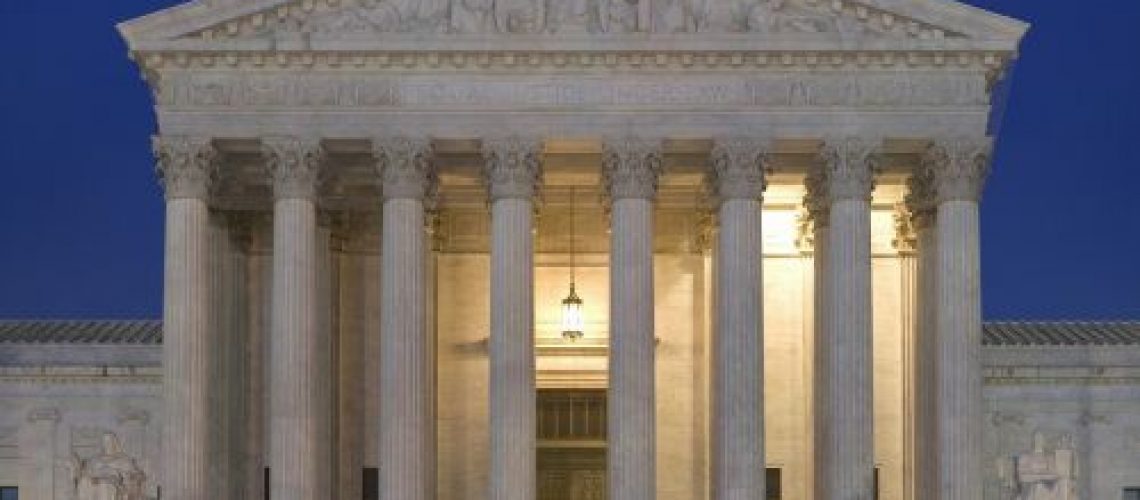The 2021-22 Supreme Court term will be hard to beat, with four pro-religious freedom rulings, including the very important Kennedy decision, and the blockbuster overruling of Roe and Casey. That doesn’t mean that things won’t be happening on these fronts this coming term, but, as of now, the docket is not as full as last term.
The one relevant case that the Supreme Court has taken, 303 Creative, is a religious freedom case masquerading as a free speech case, as the Court only accepted for review the free speech issue. Nonetheless, this compelled speech case, in which a web designer announced that she would not design web sites for same-sex marriages, has a free exercise underpinning because it is her religious beliefs that inform her stance. The Colorado Civil Rights Commission, not cowed by its rebuff in Masterpiece, is again asserting she unlawfully discriminates against sexual orientation. The Court will presumably set the case for argument this fall.
Klein v. Oregon Bureau of Labor and Industry (No. 22-04) is a case similar to 303 Creative and has been up to the Court once already. It involves Oregon coming down hard on a designer of custom wedding cakes who also refused to celebrate same-sex weddings due to her religious beliefs. The first time the baker petitioned, the case was sent back for reconsideration in light of the decision in Masterpiece, and, on remand, she was partially successful in the Oregon courts, but not wholly by a long shot. She has filed a petition asserting the Oregon courts misapplied Masterpiece, that Oregon is violating her free speech and free exercise rights, and that Smith should be overruled. My money is on another “hold,” this time for the 303 Creative decision, and then a remand for reconsideration. Obviously, though, the Court could also decide to use this case as a vehicle to reexamine Smith, as several justices said they were ready to do two terms ago in Fulton v. Philadelphia.
Yeshiva University v. YU Pride Alliance also deals with a clash of religious beliefs and same-sex discrimination, with Yeshiva refusing to grant school sponsorship to a gay pride club due to its belief that it would violate Jewish religious principles on which the school is founded. New York courts required the school to sponsor the club and, after working stay requests through the NY courts, the school requested a stay from the Supreme Court. The majority refused the stay on the ground that the school still had not exhausted its state remedies, while a four-justice minority would have granted the stay and said they would grant certiorari should the ruling on the merits stand. The school in response refused to sponsor any clubs. If a petition wends its way back to the Court this term, it likely will get a favorable reception.
The Ninth Circuit agreed that the ministerial exception shielded a Catholic high school from being sued for racial discrimination by its former principal. The principal has petitioned in Orr v. Christian Brothers High School (No. 21-1416), claiming he had no religious duties or training and so the exception should not apply. It seems unlikely that the Court will entertain the principal’s petition.
The Ninth Circuit in Tingley v. Ferguson has recently upheld Washington’s “conversion” counseling ban, which prohibits licensed counselors in the state from assisting their clients in changing their same-sex and other-gender proclivities. The same basic law was struck down by the Eleventh Circuit in Otto v. Boca Raton as a free speech violation, and it seems likely that Tingley will be petitioned and given a hard look due to its conflict with Otto.
Several members of the Court in past terms have indicated a willingness to reconsider the “de minimis” religious accommodation standard of Title VII as formulated in TWA v. Hardison, and that issue is again presented to the Court this term in Groff v. DeJoy (No. 22-174).
Finally, it seems certain that multiple petitions will be filed, and perhaps requests for stay as well, based on activity in courts and legislatures spawned by Dobbs and its overruling of Roe and Casey. The first petition to hit is Doe v. McKee (No. 22-201), which challenges a pro-abortion law of Rhode Island. It seem unlikely, however, that the Court will be anxious to wade into the abortion waters again this term.

